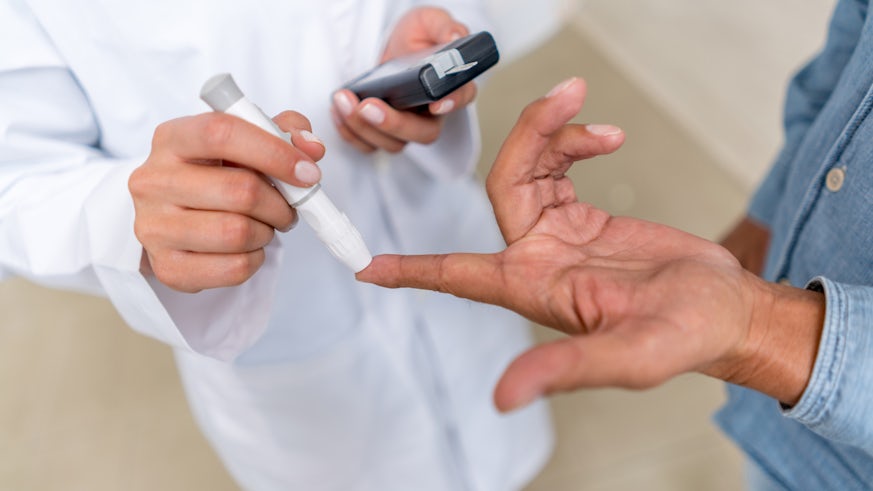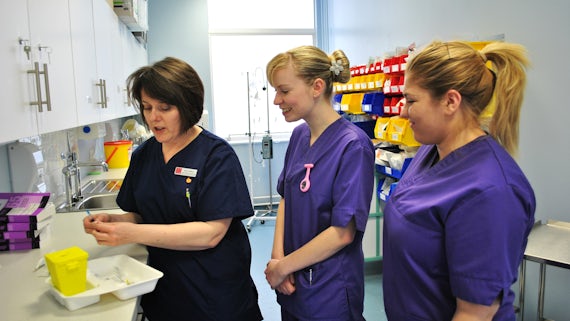Diabetes medication system
14 February 2017

A simple device for controlling and organising diabetes medication could prevent patients from developing life-changing complications and save the NHS millions of pounds, a study by Cardiff University has shown.
Participants in the study were given a NeedleBay device which allows the user to prepare insulin needles a week in advance, attach and remove them safely from the insulin pen and dispose of used ones touch-free. Additionally, a clear plastic lid lets users see how many injections they have, eliminating the risk of missing injections or double dosing.
Before the introduction of the device, over two thirds of the 226 participants had missed insulin injections or mistakenly taken a double dose. During use of the device the number of patients making these errors dropped to around 20%. There was also a sharp decline in the number of people accidently pricking themselves while attaching or removing the insulin pen from the needle and a 20% increase to 99% in the number of people who generally felt in control of their medication.

Increased insulin adherence
Lead researcher, Professor Molly Courtenay said: “It’s very important for those with insulin-dependent diabetes to manage their medication appropriately. If glucose levels aren’t maintained there is a risk of complications including vision loss, kidney failure or cardiovascular disease..."

“Our results show that insulin delivery devices are hugely beneficial in overcoming both physical and psychological barriers to effective insulin therapy. Use of the device increased adherence by 50%."
“Given that four-fifths of NHS diabetes spending goes on treating complications caused by poor insulin adherence, the potential savings, and benefits for patients, are significant.”
Recent figures show there are now 4.5 million people with the condition in the UK, which includes 3.5 million adults who have been diagnosed, an increase of 119,965 compared to the previous year, and an increase of 65% over the past decade. Around one in ten of these people are dependent on insulin.
Dr Emily Burns, research communications manager at Diabetes UK says: “It's promising how helpful some people found NeedleBay..."
“Hundreds of thousands of people in the UK with Type 1 and Type 2 diabetes treat their condition with insulin, in order to regulate blood glucose levels and prevent complications like kidney disease, amputation and blindness.”
Dr Gill Jenkins, a GP with who has type 2 diabetes says: “It’s actually surprisingly easy to forget an injection, particularly when you are travelling. I have used this device for a couple of years and I know it does help you manage your injections and tablets..."
“It is quite easy to set up and use. It gives you better control and reduces the risk of crashing up or crashing down.”
Strategic Insight Programme
Professor Courtenay’s work was aided by £3,000 in early-stage funding from the Strategic Insight Programme, a pan-Wales programme financed by the Higher Education Funding Council for Wales which helped university academics collaborate with companies to develop ideas.
Paul Thomas, Business Manager at Cardiff University, said: “The programme, which has now ended, paid for up to 50 hours of academic time with a business to explore ways of working together. Molly had introduced herself to the Director of NeedleBay, because of their shared interests in insulin self-management, and the £3,000 helped to bridge the gap. NeedleBay put in some extra funding to help Professor Courtenay conduct further research with end-users, and the results have been outstanding..."
"We hope it might lead to a much broader research project, possibly through a Knowledge Transfer Partnership between NeedleBay and Professor Courtenay."
The NeedleBay device was developed by Diabetes Care Technology (DCT) Ltd in consultation with patients.

